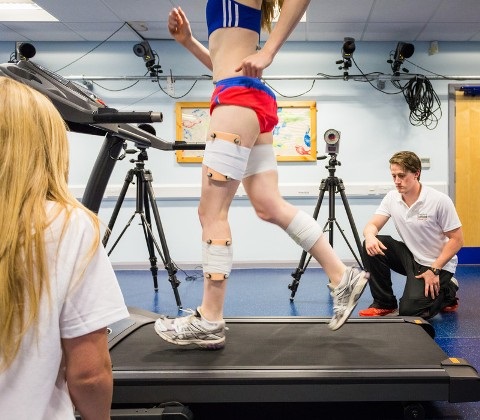Dec 10 2015
The University of Salford is looking for volunteers to take part in a new research study that aims to help people who suffer from poor blood circulation to walk without pain.

Tests being carried out on person with poor blood circulation in their legs and feet.
The walking distance for people with poor blood circulation, termed peripheral arterial disease, in their legs can be limited because of aching pains felt around the calf muscles, and occasionally thighs. This is caused by a low supply of blood and oxygen to certain muscles, intermitted claudication.
This study aims to better understand why an act as simple as walking can become so painful for those affected. The results of this study will be incorporated in the design of a new rocker sole shoe that specifically reduces this pain. A rocker sole shoe is a type of footwear used to take on part of the work normally carried out by a person’s calf muscles, making this an appropriate style of shoe to use.
The study itself will include examining the differences between those who experience pain whilst walking and those who don’t and investigating how modified shoes could help ease the pain. It is hoped the new shoe will help people with poor blood circulation to walk further distances, improve blood supply to the legs and feet, and help to reduce the risk of future pain.
PHD student Effy Evangelopoulou, who will be leading the study, says:
This research study hopes to improve the uncomfortable experience many people, suffering from poor blood circulation, currently endure when walking short or long distances.
Utilising our research findings, we aim to help design a new piece of footwear which will make tasks such as walking to the shops, less of an obstacle for those affected.